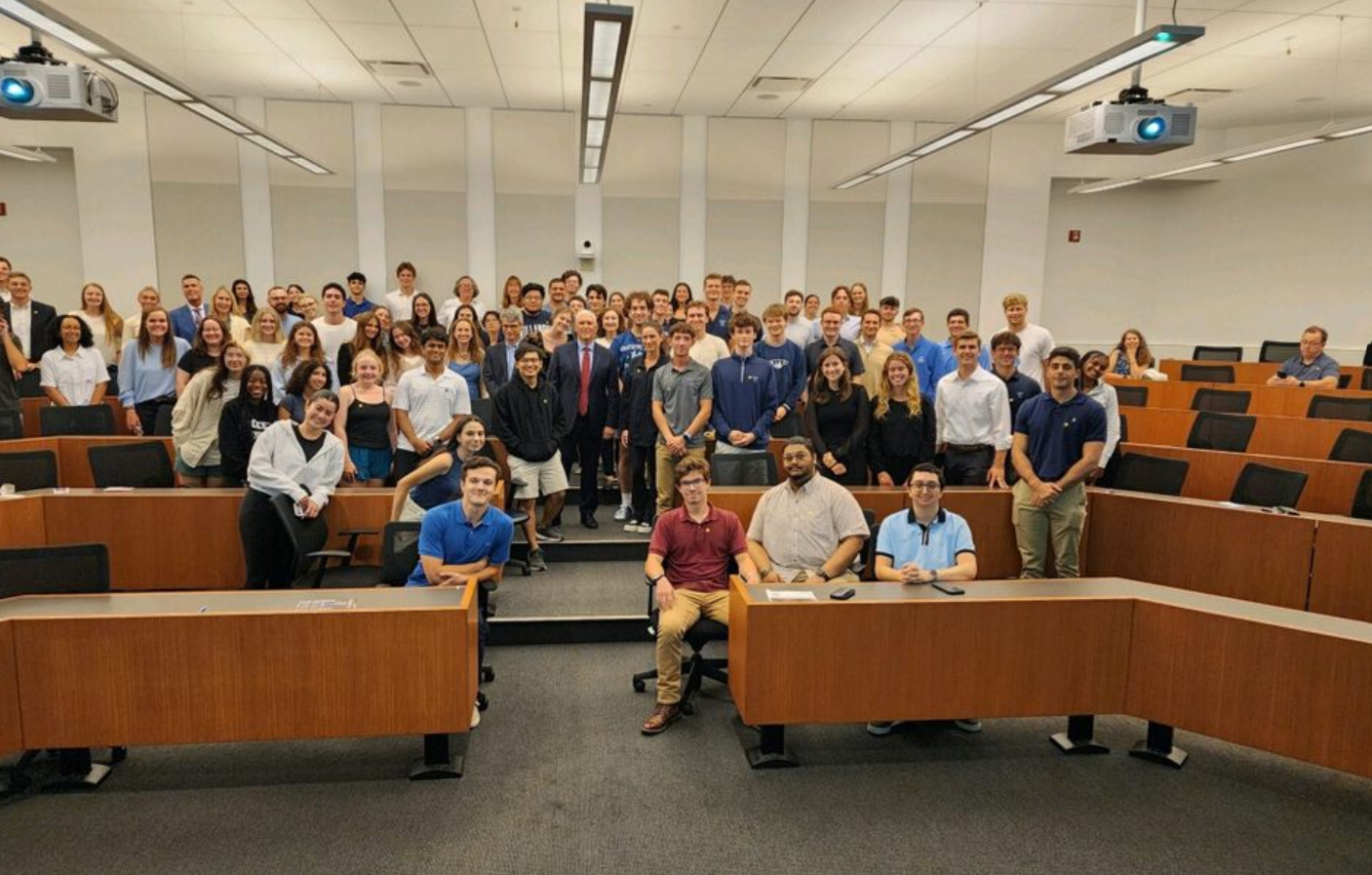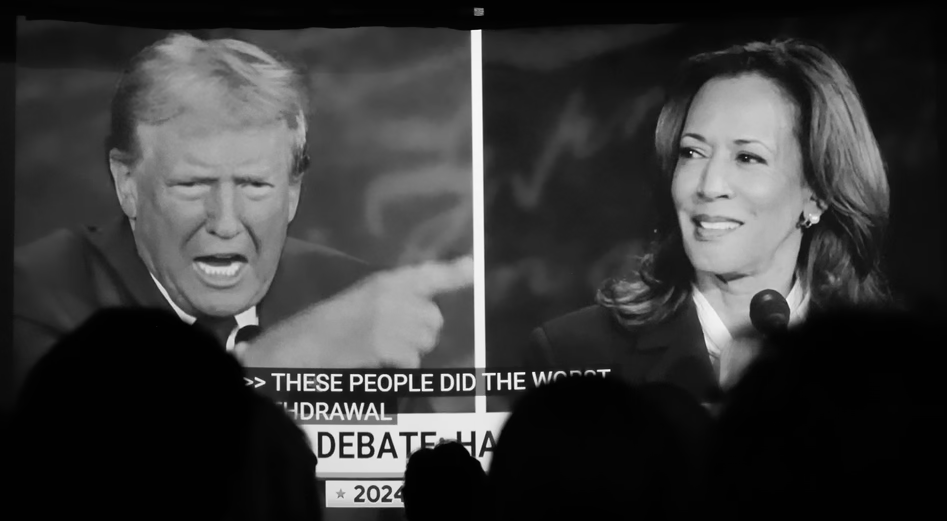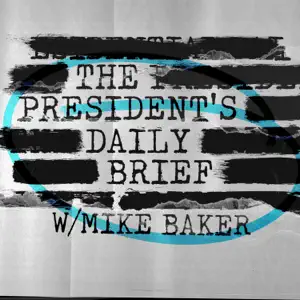
Time to end secret data laboratories—starting with the CDC
The American people are waking up to the fact that too many public health leaders have not always been straight with them. Despite housing treasure…
Thought Leader: Marty Makary

On Wednesday, Sept. 18, former Vice President Mike Pence was invited to Villanova to answer questions posed by students and faculty members. He discussed his successful political past, including serving time as a congressman, governor, and of course, his vice presidency. Pence’s career transversed several political and social controversies. The event began with an introduction by Dr. Mark Alexander, Dean of the Charles Widger School of Law.
He reminded attendees of the values upheld by Villanovans: veritas, unitas and caritas, or truth, unity and love. Alexander took a moment to reflect that this means speaking with respect, knowledge and compassion, regardless of political views, as well as approaching the discussion with a welcoming attitude. Bringing up Villanova’s Augustinian tradition made me wonder: was Pence an advocate of unitas, caritas and veritas during this discussion?
Beginning with the issue of religious involvement in politics, I would say that faith massively affects not only various political issues and affiliations, but also the political climate. Pence duly noted that faith helped his political achievements, explaining when he lost campaigns, it was because he did not put faith into them.
“I am Christian, conservative and Republican, in that order,” Pence said.
Pence also called for the greater protection of the sanctity of human life, which he was disappointed that the Republican Party has not emphasized in this election. But can political policies be solely based on religion? Does religion play a part in constitutional values? No. The First Amendment of the United States, under the Establishment and Free Exercise Clauses, calls for a separation of Church and State, stating, “Congress shall make no law respecting an establishment of religion, or prohibiting the free exercise thereof” (U.S. Courts).
Written in 1791, it is clear that the Constitution was written to prevent the United States from state-supported churches, such as the Church of England. Pence is entitled to his own religious views, but they do not have a place in the governance of the law or the Constitutional power, which he promoted as “The greatest national charter of history.”
I appreciated Pence’s recognition of the horrors of Jan. 6.
“There were circumstances at the Capital that I’d never thought I’d see,” Pence said. “I hope it’s remembered as a day that showed the resilience of our institutions.”
He regarded the day as “tragic” and addressed the rumor of misplacing electoral votes, stating that a single individual determining which votes count is unconstitutional.
He reflected on the 2001 election, in which Al Gore lost to George W. Bush by electoral vote. Pence commented that he felt he did his duty to uphold the Constitution of the United States.
Regarding the terrorist attack in Israel on Oct. 7, I was disappointed Pence did not emphasize the amount of civilian Palestinian deaths. He visited southern Israeli communities following the attack.
“If you feel the loss of civilian life, [that’s good]… but be careful what you end up defending,” Pence said. “I… stood on blood-soaked carpets… heard stories about children being tortured… set on fire.”
Such profound loss of innocent human life is inexcusable, and in my opinion, the press does not talk about the number of Palestinian women and children who have been killed or injured in Gaza since Oct. 7. Moreover, Pence failed to explain context to the terrorist attack. This conflict has been happening for decades. I was surprised when several colleagues clapped after Pence’s statement, as in many ways, it did not embody the Villanova value of caritas.
“It’s the American people,” Pence said when asked what keeps him optimistic during this time of extreme political polarity. “The American people are not as divided as American politics.”
Pence shared an emotional memory following the terrorist attacks of 9/11. He vividly remembers the plane that crashed into the Pentagon, and the horrors he saw on television that day. But something brought him comfort. The next day, the line for recruitment for the armed forces was around the block. Pence exercised unity in this segment of conversation.
“Our politics are the most divided in my lifetime,” he said. “But the character of this country is like no other.”
Pence recounted the several natural disasters which have plagued American land and the helping nature of citizens across the continent. As long as I can remember, politics have been extremely polarized. I found hope in this statement, hope of change and progress. In several ways though, I do not think the character of this country’s people reflects values in basic human rights, truth and love.
Did Pence embody our Augustinian tradition in his conversation? In some ways, yes. In other ways, no. I hope his visit was a reminder to all to examine our values of truth, unity and love.
Time to end secret data laboratories—starting with the CDC
The American people are waking up to the fact that too many public health leaders have not always been straight with them. Despite housing treasure…
Thought Leader: Marty Makary
David Frum: How Harris Roped a Dope
This piece is by WWSG exclusive thought leader, David Frum. Vice President Kamala Harris walked onto the ABC News debate stage with a mission: trigger…
Thought Leader: David Frum
Michael Baker: Ukraine’s Faltering Front, Polish Sabotage Foiled, & Trump vs. Kamala
In this episode of The President’s Daily Brief with Mike Baker: We examine Russia’s ongoing push in eastern Ukraine. While Ukrainian forces continue their offensive…
Thought Leader: Mike Baker

